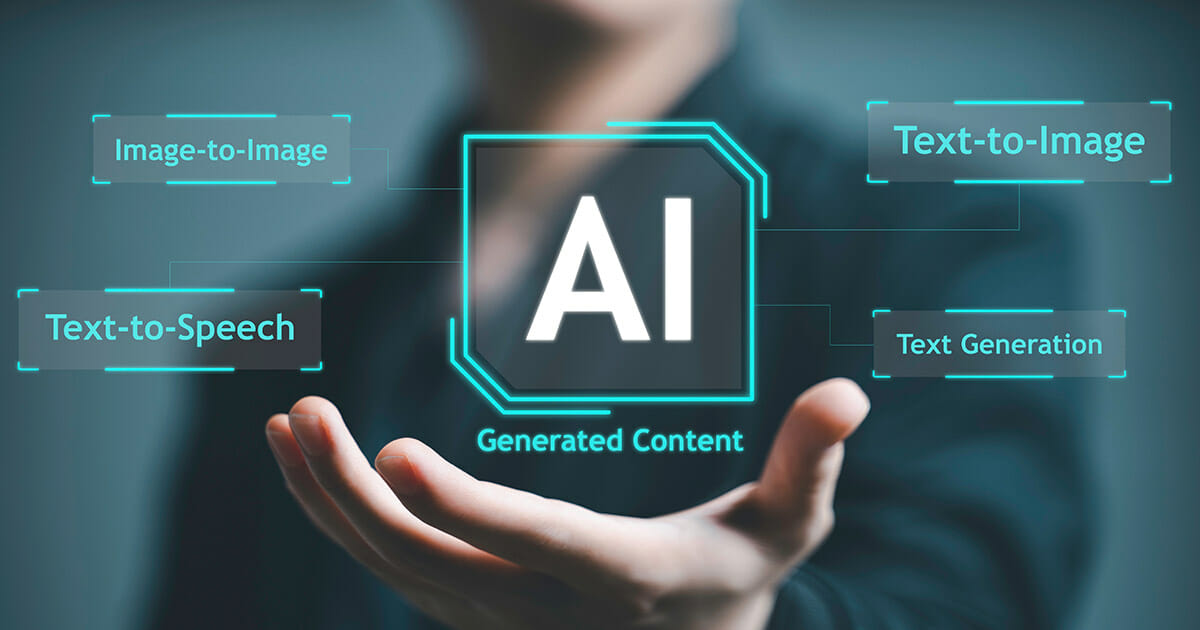There is no way to ignore the power of AI in today’s world, ranging from its amazing innovations to the fear that it will completely replace human employment. Although AI is making significant incursions into how we run business, it will have a positive effect. Using algorithms for ML (machine learning) and NLP (natural language processing), AI may streamline complex tasks and aid people with disabilities in navigating digital environments. These digital content accessibility services permit individuals to receive the personal attention and assistance they require. This blog will examine how AI provides the best accessibility solutions which will benefit people with disabilities.
A Brief Introduction to Digital Accessibility
Digital Accessibility pertains to how products, services, devices, and platforms are designed and developed to be accessible to persons with disabilities. According to a WHO report, approximately 16% of the world’s population, and 1.3 billion individuals, have a certain kind of disability.
Accessibility solutions assist brands in making their website or application digitally inclusive and in conforming to accessibility standards and regulations. People with disabilities may encounter significant barriers when attempting to access education, healthcare, entertainment, employment, and other essential amenities without a web accessibility solution.
Accessibility solutions can facilitate technology navigation, use, and communication for individuals with disabilities. This inclusive strategy ensures that the requirements of disabled people are considered and enables brands to realize substantial business benefits. It guarantees that its website, platform, or application is accessible to a larger audience, enhancing consumer loyalty.
Effects of AI on Content Accessibility for People with Disabilities
In recent years, the role of AI in augmenting accessibility for people with disabilities has received more attention. As AI technology keeps evolving, its potential to improve the lives of people with disabilities has become evident as it offers them creative accessibility solutions. Here we will examine the impact of artificial intelligence (AI) on accessibility solutions for people with disabilities, concentrating on how AI technology can be utilized to create a more accessible and inclusive world for all.
The research and creation of assistive technologies may assist individuals with disabilities in conquering mobility, communication, and independence hurdles. This is one of the most promising applications of artificial intelligence in the field of accessibility. By translating their words into text or speech, AI-powered speech recognition systems can help individuals with speech impairments communicate more effectively. Similarly, AI-powered image recognition tools may be utilized to create applications that aid visually impaired individuals in navigating the world around them by offering them real-time data about their surroundings.

Despite the numerous advantages of AI in improving accessibility for individuals with disabilities, it is essential to recognize that the widespread use of AI technology also poses certain risks and challenges. AI-driven decision-making systems, for instance, may unintentionally reinforce existing biases, thereby distinguishing people with disabilities. Concerns have also been expressed regarding the opportunity for AI technology to be employed in ways that violate the liberty and privacy of individuals with disabilities.
Fields Benefitting the Disabled With AI-based Content Accessibility (H3)
Education
Education is another field where Artificial Intelligence has an opportunity to have an enormous effect on accessibility. By utilizing AI technology, tutors can construct personalized learning environments for pupils with disabilities, assuring they receive the necessary support and resources to achieve academic success. AI-driven NLP algorithms, for instance, can be used to develop tools that autonomously generate alternative descriptions in text for images, thereby making the digital content readily available to students with visual impairments. In addition, speech recognition systems powered by artificial intelligence can produce real-time captions for audio content, allowing candidates with hearing impairments to engage with learning materials with multimedia.
Workplace
AI can also play a significant role in creating a more inclusive workplace for workers with disabilities. For instance, data analysis tools powered by AI can be used to identify and resolve potential hurdles to workplace accessibility, such as communication difficulties or physical obstacles. AI-powered assistive devices can help disabled employees execute their job duties more efficiently by providing individualized accommodation and support.
Transportation
AI technology can be utilized to increase the usability of transportation systems and public spaces for people with disabilities. For example, AI-powered image recognition systems can be used to create applications that offer real-time data for public space accessibility, like the position of elevators and ramps. In a similar manner, AI-powered navigational devices can help people with disabilities schedule their travel itineraries more efficiently by considering accessible modes of transportation and being aware of potential mobility barriers.
Wrap up
By providing innovative accessibility solutions, AI technology can substantially enhance the lives of people with disabilities. By leveraging AI, we can build an accessible and inclusive world for everyone. However, we must remain vigilant regarding the potential risks associated with the pervasive adoption of AI technology. Therefore, get in touch with a professional AI company like Opporture in North America to make sure that AI-based accessibility solutions are created and ethically put into effect.


